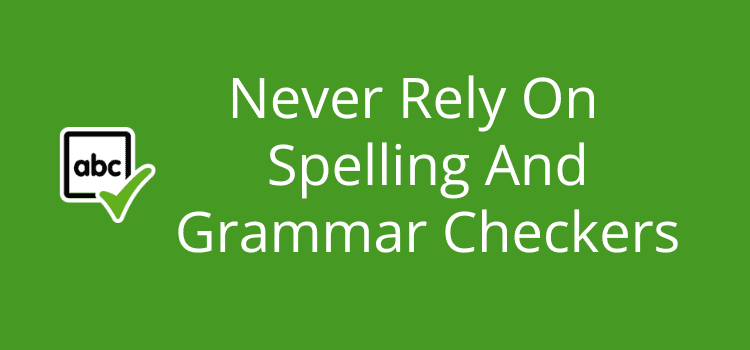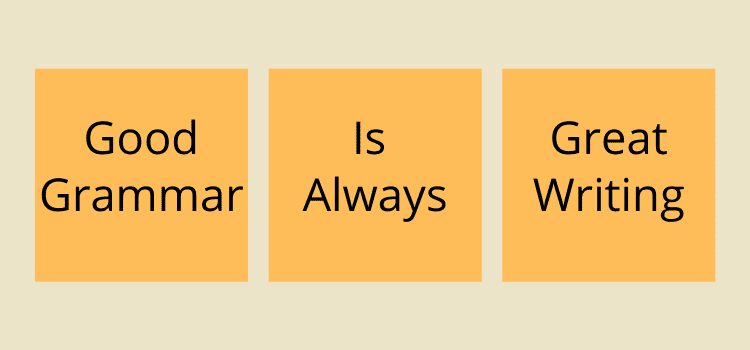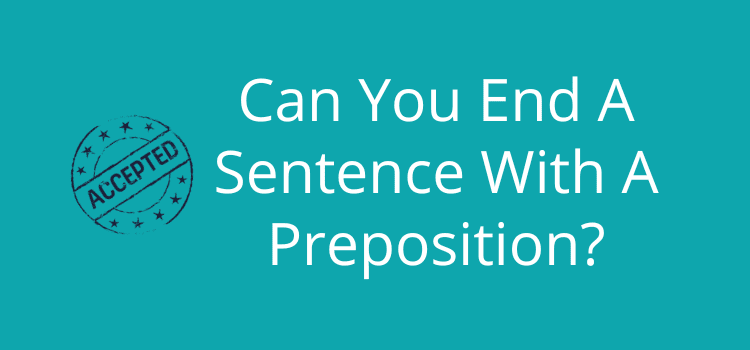
If you are a new writer or author, never trust grammar checkers 100% to correct your writing.
With all the terrific online writing tools and correctors we use today, correcting writing mistakes seems easy.
However, none of them are perfect. Even if you pay for a premium version, it can miss some errors, typos, and grammar mistakes.
Yes, grammar and spell checkers can help you correct and improve your texts. But you can’t trust them to find and fix every mistake.
Self-publishing is a great opportunity
Self-publishing has given the freedom of expression to all who wish to use it.
It has probably brought thousands of manuscripts to life that were lying in a bottom drawer gathering dust.
Many of these manuscripts were probably submitted to literary agents repeatedly.
Only to be rejected as many times.
However, these stories were eventually published in print and as ebooks, and are now available to readers.
Some authors have built a new business for themselves from self-publishing.
Others have used it to get their one and only book into the public domain.
For whatever reason, self-publishing has proven to be a resounding success for all types of authors.
But there is a downside.
The quality of some self-published books is not always up to standard.
Too many grammar and spelling errors
For readers, however, there has been one annoyance.
Many books and ebooks on Amazon, Apple, Barnes & Noble, and elsewhere often contain basic English grammar and spelling errors.
These can be very annoying for a reader.
If there are too many mistakes, a reader will likely give up on the book, regardless of how good the story may be.
Even minor errors and typos can ruin the flow of the reading experience.
Often referred to as typos, most of the mistakes I encounter are similar in kind and are made because writers place too much trust in online and automatic grammar and spell checkers.
While online grammar and spell checkers can do an outstanding job of highlighting errors and making suggestions to improve a text, some mistakes will always slip through.
No online spelling or grammar checker is perfect.
In fact, far from it. So, never rely on a grammar checker.
However, grammar and spell checkers are extremely useful when correcting your writing.
They can find a lot of mistakes and potential grammar improvements you can make.
But they are definitely not human proofreaders.
There will always be contextual spelling mistakes, run-on sentences, and misused words.
The only way to find these mistakes is to sit down with your text, get out your red pen, and use your eyes to check.
If you place your trust in grammar checkers, the result will be far less than perfect.
The top 10 errors that will often slip through
The most common errors I see fall into the following ten categories.
These errors cannot always be detected by online grammar and spell-checking.
That is why you should never trust a grammar checker to find and correct every mistake.
If you are new to self-publishing, the following checklist may help you find errors when proofreading your final text.
Yes, a premium or free grammar correction tool, or even Microsoft Word, will find many mistakes.
However, no online grammar checker will find all mistakes and errors.
To find them, you need your eyes and your writing skills to help you when you proofread.
1. Wrong Tense Usage
In the middle of a scene set in the past, finding one stray sentence in the present is very annoying.
It was warm, with a gentle breeze. She sat on a towel on the hot beach sand and opens her book.’
2. Incorrect pronouns
She crossed her legs and thumbed through the pages of his book.
3. Homonyms
Their weren’t many people left on the beach, but there sandcastles stood waiting to be washed away by the incoming tied.
4. Mistakes In Dates
You might type 1814 in error instead of 1914 or eighteen-fourteen to nineteen-fourteen.
No spell checker will notice this inconsistency.
5. Compound Words
Spell checkers often don’t understand the problem with bath room when it should be bathroom, or that snow flake should be snowflake.
6. Possessive Pronouns
Its, it’s, her, hers, their, and theirs must be the most common errors and are difficult for a grammar checker to detect when used incorrectly.
Only accurate human proofreading will find these errors.
7. Repetition
Grammar checkers can detect errors involving the same word used twice in a row, but won’t recognize a phrase or sentence used twice.
Be careful when using cut, copy, and paste when writing, as this can easily as this can cause errors in a text.
8. Omissions
Grammar checkers often miss highlighting a missing word, such as the, in the following phrase.
She went to South of France for her vacation.
9. Wrong words
Affect and effect are easily confused and misused, and marshal and martial are entirely different words.
If you choose to use persons instead of people, a grammar check might say you are wrong.
But a spell checker will rarely notice the error.
10. Character Names
Catherin, Catherine, or Katherine?
There is nothing more annoying than the spelling of a character’s name changing throughout a story.
However, a spell checker will mark all of these variations as correct.
The only reliable checkers are human eyes
The only way to avoid mistakes, including the ones noted above, is to check carefully.
Forget about trusting a word processor’s grammar and spelling correction tools or any other tool you use.
Premium grammar and writing checkers can be a fantastic help in checking a draft manuscript.
You can use them for an overall scan and check before proofreading, but never rely on them.
You need your eyes and your logic to get to work.
Yes, self-publishing is very close to a fully automated process, but writing and writing well is not.
You should certainly use grammar and spell checkers to help you improve your text.
But then you need to take one more important step.
Nothing will replace the eyes of a meticulous proofreader, a red pen, and a keen knowledge of grammar, usage, and accurate spelling to produce high-quality text.
Related reading: What’s The Difference Between Blonde And Blond?




So very true.